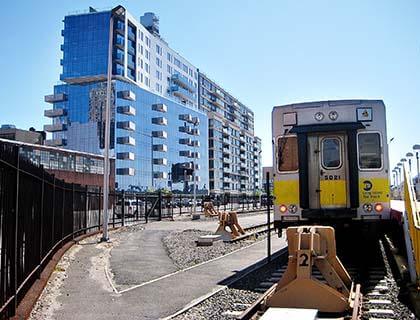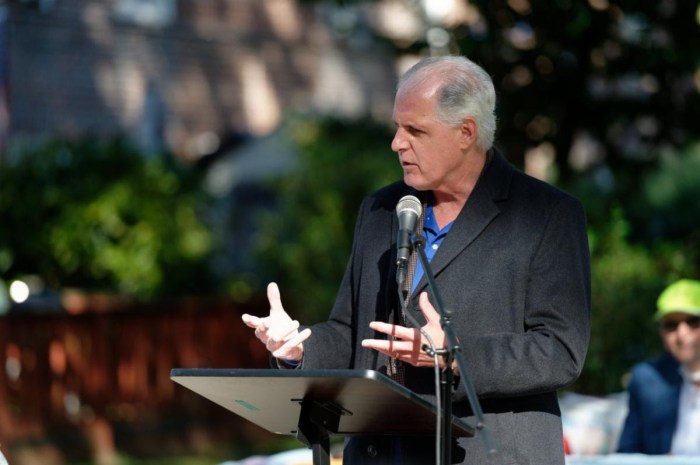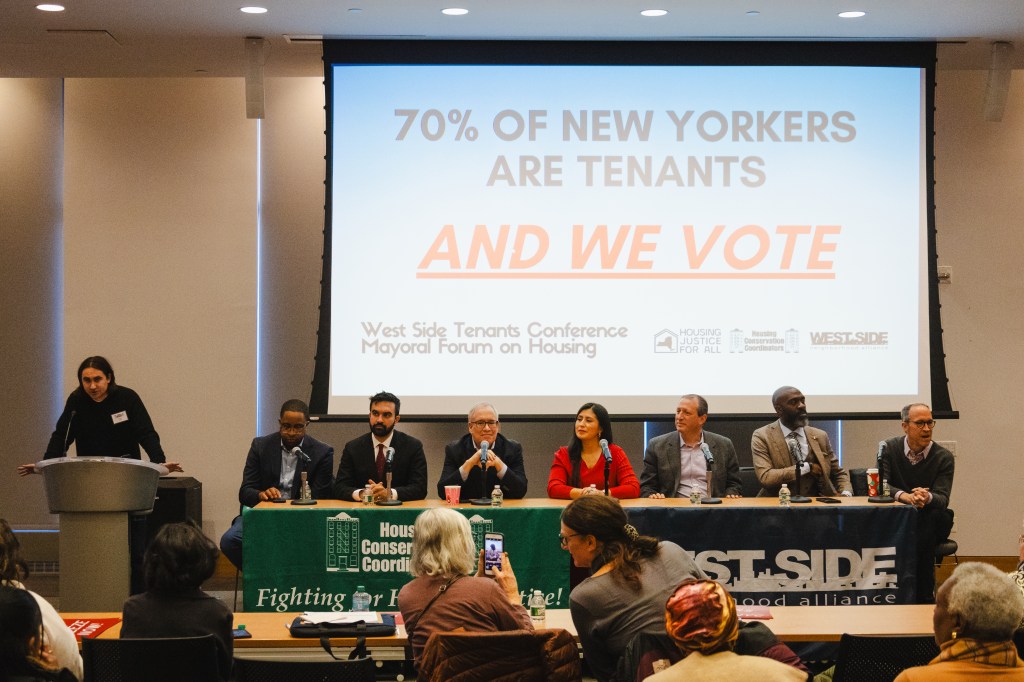By Rebecca Henely
State Sen. Michael Gianaris (D-Astoria) is incensed over the MTA idling its trains near Borden Avenue in Long Island City, but the Long Island Rail Road said that while the running motors may be loud, they are also a necessity.
The LIRR yard outside the tunnel to Manhattan has been used by the Metropolitan Transportation Authority and LIRR’s trains, many of which are now run by diesel fuel, for 100 years. Like most of Long Island City, the adjacent area has been seeing increased residential growth with condominium complexes like The Foundry, Murano Condo and One Hunters Point being built along Borden Avenue near the yard.
Gianaris said some of those residents had complained to him about the trains idling in the yard, which can create loud noises for hours at a time. Having tried to lower the noise in the community via silencers for the exhaust fans on the No. 7 subway line along 50th Street, the senator said the idling engine sounds were an unacceptable burden on the residents.
“At a time when they are raising fares that are leading to poverty, the MTA is wasting expensive fuel and creating a quality-of-life problem in Long Island City,” Gianaris said.
Yet the trains have to idle for a variety of reasons, the LIRR said in a statement. If the locomotives are completely shut down when the temperatures fall below 50 degrees, their engines can freeze. Given the multiple systems — like electrical, pneumatic and plumbing — the trains may not be able to get running again for a long time.
“Up to an hour may be needed for a full shutdown, and it can take up to two hours to return a diesel locomotive to service-ready status, including pre-trip equipment testing,” the LIRR said.
Gianaris has written a letter to the MTA requesting that the trains not be allowed to idle.
The LIRR said it has been making efforts to reduce the noise burden on the community since 2009, when it created an internal group dedicated to minimizing the effects of the idling train. The railroad shuts down diesel engines when the temperature is above 50 degrees, has switched to electrical power only on dual-mode locomotives, shuts down one locomotive on any two-engine train, has revised equipment schedules and has moved the idling trains as far away from Borden Avenue as possible. It has also used more trains equipped with a system, SmartStart, which can fire up diesel engines quicker.
“Looking ahead, we will continue to seek any and all opportunities to reduce idling without compromising service,” the LIRR said.
Resident David DeCicco acknowledged the steps in a letter sent to NYPD Commissioner Ray Kelly, but said they were mostly cosmetic and occasionally poorly enforced.
“The limits of what the LIRR calls its ‘noise-minimization strategy,’ when coupled with careless personnel, poor policy and inattentive supervision, result in a situation that comprises not only our comfort and air quality, but also our safety and the security of the city of New York,” DeCicco said.
Gianaris said it is important to monitor infrastructure given the rapid changes going on in Long Island City.
“It’s a growing area, it’s an improving area,” Gianaris said. “As more people move into that neighborhood, it’s important the infrastructure keeps place with the growth.”
Reach reporter Rebecca Henely by e-mail at rhenely@cnglocal.com or by phone at 718-260-4564.

































